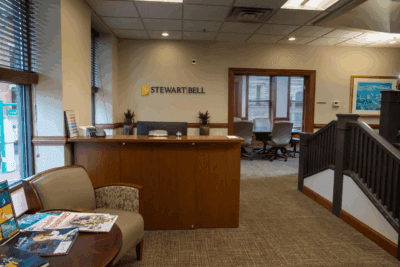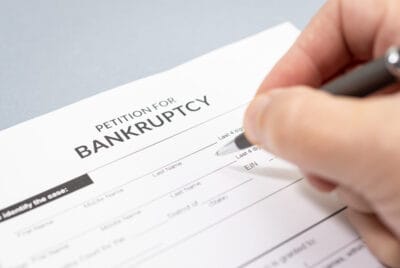
The Short Answer…
If your loved one has suffered abuse in a nursing home, you may be able to recover financial compensation through a settlement or court verdict. Nursing home abuse compensation can help cover medical expenses, emotional suffering, and other losses caused by mistreatment. Read on to learn how compensation works, who qualifies, and what steps to take to protect your loved one’s rights.
Key Takeaways
- Compensation can come from settlements or verdicts: Most cases resolve through pre-trial settlements, but others go to court where a judge or jury decides the outcome.
- Types of compensation vary: Awards may include medical expenses, pain and suffering, and punitive damages to punish the at-fault party.
- Case value depends on several factors: Injury severity, emotional trauma, state laws, and duration of abuse can all influence the final amount.
- Working with an experienced attorney can improve outcomes: Our nursing home abuse lawyers understand how to build strong cases and seek maximum compensation.
Table of Contents
- What Is Nursing Home Abuse Compensation?
- Types of Compensation Available in West Virginia Nursing Home Abuse Cases
- Factors That Affect Nursing Home Abuse Compensation Amounts
- Who Can Get Nursing Home Abuse Compensation in West Virginia?
- How to Pursue Nursing Home Abuse Compensation
- The Benefits of Working With Stewart Bell, PLLC
- Nursing Home Abuse Compensation FAQs
- Let Us Help You Seek the Compensation and Justice
What Is Nursing Home Abuse Compensation?
Nursing home abuse compensation is the financial recovery victims or their families receive after proving abuse occurred. This abuse may include:
- Physical harm
- Emotional or psychological abuse
- Neglect (e.g., malnutrition or poor hygiene)
- Financial exploitation
- Sexual abuse
In West Virginia, victims may recover damages through a civil lawsuit filed against the facility, staff, or any other responsible party. Many of these cases are resolved through settlements, where the responsible party agrees to pay a negotiated amount without going to court. In other cases, the claim may go to trial, and a judge or jury decides the outcome. Settlements are typically faster and more private, while verdicts can lead to higher compensation when strong evidence is presented.
Types of Compensation Available in West Virginia Nursing Home Abuse Cases
Victims of nursing home abuse in West Virginia may be entitled to several forms of compensation depending on the nature and extent of the harm they’ve suffered.
Economic Damages
Economic damages are the measurable, financial losses that victims or their families suffer as a result of nursing home abuse. These damages aim to reimburse out-of-pocket costs and restore the victim’s financial situation.
- Medical Expenses: Abuse often leads to serious injuries that require emergency care, surgeries, hospitalization, rehabilitation, and long-term treatment. Victims can recover medical costs related to the abuse.
- Mental Health Treatment Costs: Psychological harm is common in abuse cases. Compensation may cover therapy sessions, psychiatric evaluations, and medication needed for conditions like anxiety, depression, or PTSD.
- Relocation Costs: If abuse requires the resident to move to another facility, families may be compensated for the costs of transferring, moving belongings, and securing a new, safe place for their loved one.
- Lost Income for Family Caregivers: When a relative must miss work or leave a job to care for their loved one, they may be entitled to recover lost wages or diminished earning capacity.
- Financial Exploitation and Property Loss: If a staff member or other party has stolen money, assets, or personal items, the value of those losses may be recovered through a civil claim.
Non-Economic Damages
Non-economic damages compensate for the invisible but very real suffering that nursing home abuse causes.
- Pain and Suffering: Victims often endure ongoing physical pain and trauma from abuse. Compensation can address the daily toll on the resident’s physical well-being.
- Emotional Distress: Feelings of fear, humiliation, depression, and anxiety are common among abused residents. These emotional consequences are compensable under West Virginia law.
- Loss of Dignity and Enjoyment of Life: Abuse can rob victims of their independence and personal dignity. Damages can account for the resident’s reduced quality of life and ability to find joy in daily activities.
- Loss of Companionship or Consortium: Spouses and close family members may receive compensation for losing the love, support, and relationship they once shared with their loved one.
Wrongful Death Damages
When nursing home abuse leads to a resident’s death, surviving family members may pursue a wrongful death lawsuit. These claims provide compensation for both economic losses and the emotional toll of a preventable tragedy.
- Funeral and Burial Expenses: Costs for services, cremation, burial, and transportation can be recovered through a civil claim.
- Loss of Services and Support: If the deceased resident provided support, guidance, or caregiving to family members, the value of that contribution may be included in the settlement or verdict.
- Grief and Emotional Suffering: West Virginia law allows family members to recover damages for the emotional pain caused by losing a loved one to abuse.
Punitive Damages
Punitive damages are not commonly awarded, but they are possible in cases involving especially egregious or intentional misconduct. In West Virginia, courts may grant punitive damages when the at-fault party’s actions go beyond negligence and show recklessness, malice, or willful disregard for resident safety. These damages are meant to punish wrongdoers and deter future abuse, and they can significantly increase the total compensation if awarded.
An experienced nursing home abuse lawyer can evaluate your case and help determine which types of damages you may be entitled to receive. They can gather evidence, calculate both economic and non-economic losses, and fight for the maximum compensation available.
Factors That Affect Nursing Home Abuse Compensation Amounts
The value of a nursing home abuse claim isn’t determined by a fixed formula, and multiple factors can influence compensation amounts. Understanding these variables can help you know what to expect and how to pursue the full amount you may be owed.
Severity and Duration of the Abuse
The more serious the abuse and the longer it continues, the higher the potential compensation. For example, a one-time, minor incident may not lead to as much compensation as months of mistreatment or physical harm. Abuse that causes long-term injury (like broken bones, deep wounds, or emotional trauma) can lead to higher settlements or verdicts. Claims that involve ongoing abuse or repeated harm are often considered more serious by courts and juries.
Documented Financial and Emotional Impact
Compensation depends heavily on what the victim and family can prove. Medical bills, therapy costs, receipts, and other financial records help show the real cost of the abuse. Emotional impact matters too. If the victim is diagnosed with anxiety, depression, or PTSD, those mental health records can support the claim. The more proof you have of financial loss and emotional harm, the stronger your case may be.
Impact on the Victim’s Quality of Life
Abuse can change a person’s life in big ways. If the victim was once active, independent, or socially engaged and is now isolated, afraid, or fully dependent on others, that’s a major change in quality of life. Compensation may be higher if the abuse leads to a loss of freedom, daily functioning, or personal dignity.
Liability and Strength of Evidence
Compensation depends on proving who was responsible, and it’s not always just the nursing home. Individual caregivers, nurses, visiting healthcare workers, contractors, or even other residents can be held accountable if they caused harm. The more evidence you have (such as witness statements, photos, videos, or medical records), the easier it is to prove fault. A strong case with clear proof often leads to better outcomes.
Potential for Punitive Damages
In the most extreme cases, the court may award punitive damages. These are not meant to cover costs, but to punish those responsible for serious or intentional harm. Punitive damages might apply when a person or facility knew about the danger but ignored it, covered it up, or allowed the abuse to continue. These damages are harder to get but can greatly increase the total compensation in some cases.
West Virginia Legal Standards
Several West Virginia laws can affect how much compensation may be available in an abuse case.
- Damage Caps: In some situations, West Virginia limits how much money a victim can receive for non-economic damages like pain and suffering. These caps mostly apply to medical malpractice cases, but they may also apply if healthcare professionals were involved in the abuse.
- Burden of Proof for Punitive Damages: To get punitive damages in West Virginia, you must show “clear and convincing evidence” that the abuse involved actual malice or a reckless disregard for safety. This is a higher standard than regular negligence and often requires strong, detailed evidence.
- Comparative Fault Rules: West Virginia follows a “modified comparative fault” system. This means that if the victim is found partially responsible for the injury, the amount of compensation could be reduced. If the victim is found to be more than 50% at fault, they may not receive any compensation at all.
- Statute of Limitations: There is a limited time to file a nursing home abuse lawsuit in West Virginia. You generally have 2 years from the date of the abuse or from the time you discovered it. If you miss this deadline, you may lose your chance to take legal action, no matter how strong your case is.
Who Can Get Nursing Home Abuse Compensation in West Virginia?
In West Virginia, several people may be eligible for compensation, depending on who was harmed and how serious the abuse was. The law allows both the victim and certain family members to file a claim to recover money for medical bills, emotional pain, and other losses.
- Resident: The person who suffered the abuse is usually the one who can file a claim. If the resident has difficulty speaking or remembering what happened, a lawyer can help gather other evidence to support their claim.
- Legal Guardian or Family Representative: If the victim cannot speak for themselves due to age, disability, or illness, a legal guardian or someone with power of attorney can file a claim on their behalf. This is common in cases involving residents with advanced dementia or other serious health issues.
- Family Members After a Wrongful Death: If the abuse leads to the resident’s death, close family members (like a spouse, child, or sometimes a sibling) may be able to receive compensation through a wrongful death claim. In some cases, the estate of the deceased person can also seek compensation.
If you’re not sure whether you’re eligible to pursue compensation, a nursing home abuse lawyer can review your situation and explain your options under West Virginia law.
How to Pursue Nursing Home Abuse Compensation
If you believe your loved one has been abused in a care facility, it’s important to act quickly and take the right steps. Here’s how to begin the process of getting compensation for nursing home abuse in West Virginia:
- Document the Abuse
Start by collecting as much evidence as possible. This might include:
- Photos of injuries, poor conditions, or visible neglect
- A journal of symptoms, mood changes, or behavior shifts
- Copies of medical records or care notes
- Statements from staff, other residents, or visitors who witnessed the abuse
Strong documentation helps prove what happened and supports your claim for compensation.
- Report the Abuse
You should report the abuse to official agencies, including:
- West Virginia Adult Protective Services (APS)
- The Long-Term Care Ombudsman Program
These organizations can investigate the situation, take protective actions, and keep a formal record. In serious cases, you may also want to contact local law enforcement.
- Contact an Attorney
A nursing home abuse lawyer knows how to build a strong legal case. They can:
- Investigate the abuse in detail
- Identify all parties who may be responsible
- Estimate the full value of your claim, including medical costs and emotional harm
- Handle communication with the at-fault party’s insurance company and legal team
At Stewart Bell, PLLC, we offer free case reviews and only charge a fee if we win your case.
- File a Lawsuit if Necessary
If the nursing home or responsible party refuses to offer a fair settlement, your attorney may file a lawsuit. Filing a claim in court sends a strong message and may lead to a higher payout. In this step, your lawyer will prepare legal documents, gather expert witnesses, and guide you through the legal process.
- Reach a Settlement or Go to Trial
Most nursing home abuse cases are resolved through a settlement where the parties agree on a compensation amount without going to court. However, if a fair settlement isn’t possible, your case may go to trial. A judge or jury will then decide how much compensation may be owed based on the evidence and testimony.
Taking legal action can feel overwhelming, but you don’t have to do it alone. The right lawyer will handle the legal side so you can focus on your loved one’s health and safety.
The Benefits of Working With Stewart Bell, PLLC
When your loved one has suffered abuse in their nursing home, you deserve a legal team that treats your case with the urgency, compassion, and skill it deserves. At Stewart Bell, PLLC, we’ve spent decades helping families in Charleston, Huntington, Dunbar, and throughout West Virginia fight for justice—and we’re ready to do the same for you.
- We Fight for Maximum Compensation: Our goal is to build the strongest case possible and pursue the full amount your family may be entitled to.
- No Upfront Cost: You only pay us if we win compensation for you.
- We Handle It All: From paperwork to negotiations, we manage the entire process.
- Focused Experience: Over 30 years of success in nursing home abuse cases.
- Personal Support: We treat you with care, respect, and consistent communication.
- Deep Local Knowledge: We know West Virginia laws, courts, and what families are up against.
- Free Case Review: We’ll assess your case and explain your options at no cost.
Nursing Home Abuse Compensation FAQs
How much is my nursing home abuse case worth?
The value of your nursing home abuse case depends on several factors, including the severity of the abuse, the physical and emotional harm caused, the financial costs involved, and how strong the evidence is. Cases involving long-term abuse, serious injuries, or wrongful death tend to result in higher compensation. A skilled attorney can help you gather the right documentation and build a strong case to pursue the full amount you may be owed.
What is the average settlement for nursing home neglect?
There is no one-size-fits-all answer for average nursing home neglect settlements because every case is unique. Settlements can vary widely depending on the extent of the harm, the type of abuse, the amount of medical treatment required, and whether the case involves long-term suffering or death. Cases with strong evidence and lasting damage generally result in higher payouts, especially if the facility has a history of violations or misconduct.
How can I maximize my settlement amount?
To get the highest possible settlement, it’s important to act quickly, gather strong evidence, and work with an experienced nursing home abuse attorney. You should document everything—medical records, photos of injuries, witness statements, and official reports. The more clearly you can show how the abuse impacted your loved one’s health and quality of life, the stronger your case will be. An attorney can also help identify all liable parties and negotiate with insurers to pursue the maximum compensation available.
How long does it take to get a settlement from a nursing home?
The timeline for a nursing home abuse settlement can vary. Some cases resolve in a few months, while others take a year or longer, especially if the case goes to court. Factors like the strength of your evidence, how cooperative the other side is, and the complexity of the case all play a role. An experienced attorney can often speed up the process by handling negotiations and pushing for a fair and timely outcome.
Let Us Help You Seek the Compensation and Justice
Discovering that a loved one has suffered in a place that was supposed to care for them is heartbreaking. At Stewart Bell, PLLC, we understand the emotional weight families carry in these situations and we’re here to help lift that burden. Pursuing nursing home abuse compensation is not just about the money. It’s about demanding accountability, protecting others, and helping your family begin to heal.
If you’re ready to take the first step, we’re here to stand with you. Contact us today for a free case review. Let us help you find answers, take action, and seek the justice your family deserves.





